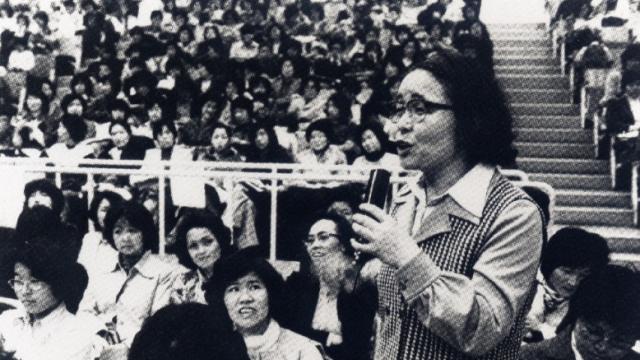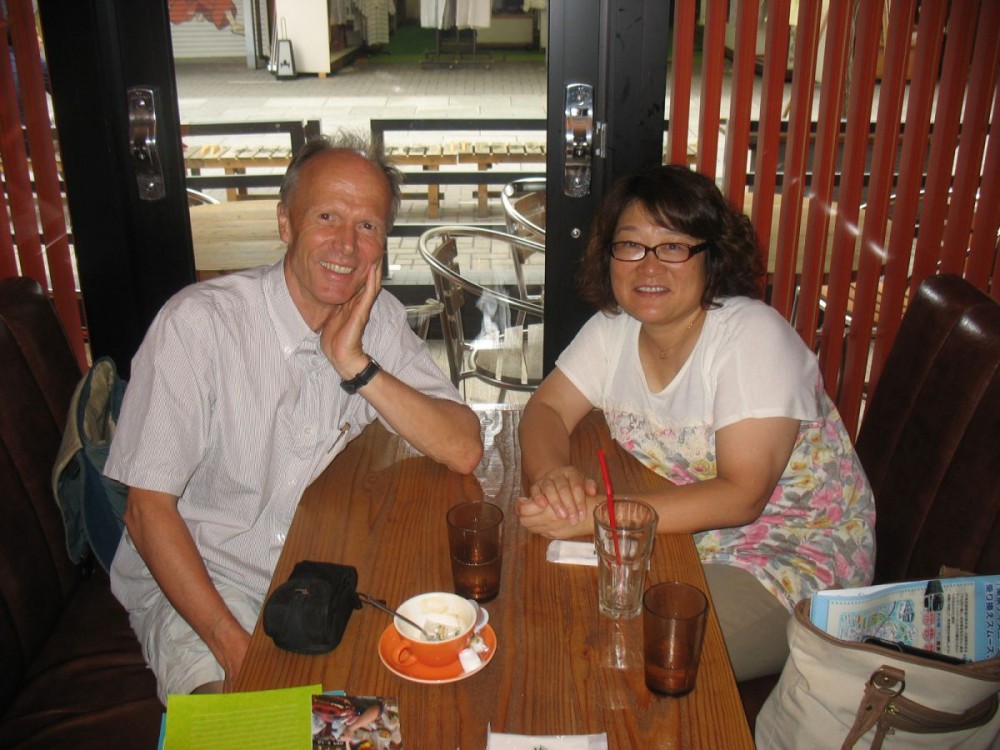
This is Part 23 in a series about Radical Municipalism looking at ways people worldwide are organizing in their cities to build power from the bottom up. Read Part 1 (Brazil), Part 2 (Rojava), Part 3 (Chiapas), Part 4 (Warsaw), Part 5 (Bologna), Part 6 (Jackson, Miss.), Part 7(Athens), Part 8 (Warsaw & New York), Part 9 (Reykjavík), Part 10 (Rosario, Argentina), Part 11 (Newham, UK), Part 12 (Valparaiso, Chile), Part 13 (Porto Alegre, Brazil), Part 14 (Montevideo, Uruguay), Part 15 (Venezuela), Part 16 (Cape Town), and Part 17 (Congo), Part 18 (Jemna, Tunisia), Part 19 (Gdansk, Poland), and Part 20 (Senegal), Part 21 (Mumbai, India) and Part 22 (Vietnam).
“We are almost drowning in the ocean of a consumer society which prevails all over the world,” says the Japanese cooperative Seikatsu, pointing to endemic problems like unsafe food, environmental destruction, inequality and poverty. “Each problem is too huge to be tackled by an individual so we have to unite with our neighbor and neighbor’s neighbor.”
Seikatsu was co-founded in 1965 by 200 women to provide – both buying and selling – healthy milk. Today it has over 33 cooperatives selling to more than 400,000 Japanese households. The group's slogan is "autonomous control of our lives."
It co-owns urban milk farms with 5,000 cows and offers everything from sesame oil production to rice to sustainably caught fish. The co-op's turnover in 2017 was more than 87 billion yen, or around $770 million.
Not only that, Seikatsu provides cooperative-based child care and elderly care. It has assisted in the election of more than 140 co-op members to local government, many of whom are women, going against the grain of male-dominated politics in Japan and beyond.
The federation has also branched out providing green energy through the Seikatsu Club Energy Co, which launched 2014, connectingrenewable energy co-ops to households. The move to into eco-energy reflects a wider green revolution happening in Japan since the 2011 Fukushima disaster demonstrated the national security risks of nuclear power.
But perhaps most significant of all, the Seikatsu model of food supply provides a working solution towards the intensifying capitalist-driven global food crisis.
Capitalism starves the earth
Seikatsu is not exaggerating that the global food system is “drowning.” UN figures from a 2018 report show that 821 million people currently live in hunger worldwide.
UNICEF reports that 3 million children die every year from starvation, and the World Health Organization estimates annually 600 million people are made ill from unsafe food, causing nearly half a million deaths. The UN Food and Agriculture Organization meanwhile estimates that one-third of all food globally goes to waste.
Capitalism rubbishes food for many reasons. Much of it perishes on long journeys. Wholesalers penalize growers for under-supply, encouraging over-supply. Supermarkets would rather throw away waste – that is, they prefer to be overstocked than have shelves sit empty – due to the capitalist doctrine that consumers need a choice of everything, all the time. Advertising and 2-for-1 deals pushes this overconsumption onto people. Wholesalers and supermarkets also want "beautiful" food, discarding the rest.
But in the context of global hunger, making food a mere commodity is criminal. On top of the 3 million children who die from starvation each year, between 9 and 36 million adults annually starve to death. Additionally, poor nutrition cuts short million more lives.
Capitalism makes food unaffordable for many reasons. Through speculation, food costs soar while casino capitalists make a killing without touching a grain of wheat, maize or rice. Another example is countries with high malnutrition that are forced to grow cash crops for export, with pressure from institutions including the World Bank and IMF.
Capitalists are a disaster for small producers, as those small producers and laborers do the hard work and big corporations reap the profits. Again, many instances highlight this chronic injustice. Agribusiness firms often force peasants to buy “their” seeds, which lock them into buying the multinationals' fertilizers as well – even though these seeds are the common creation of peasants' ancestors.
Through free trade agreements, farmers of the global south must compete with farmers in the north who receive extensive subsidies. This means food is dumped on the global south, undercutting small producers. Constantly, agribusiness uses its political and economic muscle to push land grabs, violently driving farmers of their land.
Increasingly, capitalist-driven ecological crises also destroy food production. From over-industrialized farming, soil degradation shows there are only 60 years worth of harvests left in top soil; collapsing insect numbers point towards mass extinction. By 2025, 1.8 billion people will face regular droughts; forest fires are burning at unprecedented rates, our seas are overfished, and swathes of the world have been destroyed by toxic industries like the oil fields that decimated the Ogoni people's land in Nigeria.
Climate change is already driving these crises, and will worsen their impacts. So the question becomes: how does humanity respond in a way that could help our civilization, and our species, survive the future? Seitatsu represents one of those solutions.
A nourished world is possible
Rather than being a middle-man between producers and consumers, the Seikatsu model creates a a mutual democratic relationship. At the consumption end, the co-op is divided into autonomous local branches, which are further divided into neighborhood units of about 10 households, known as “Han.”
Across Japan, there are 200 autonomous branches and many thousand Han. The Han make direct orders to the producing cooperatives. Each Han sends representatives to the branches, but it is the Han that coordinates each household's needs and bonds the community locally.
Direct producer-consumer relationships mean both parties get a fair price, without capitalists taking a large slice. Direct ordering reduces food waste. There are also less overheads, for instance, for storage facilities as fresh local food goes directly to neighbourhoods.
Seikatsu works with producers. One example was the feedback from the Han-assisted Hirata Farm, which created Japan's first additive-free sausage.
Seikatsu began with the goal of providing safe and healthy milk. It continues with the principle of ethical, safe and sustainably produced food, with ">standards co-written by the Han that all producers must meet. The food is GMO-free. A great deal of resources are also saved by re-using bottles and reducing packaging.
Another Seikatsu goal is increasing Japan's food self-sufficiency. This reduces food miles, reducing the carbon foot print of container ships and flights. It also takes big corporations out of the food equation, meaning Seikatsu's members do not fund land grabs in the global south. To improve Japan's food self-sufficiency, in addition to buying food locally, Seikatsu sources idle farm land to grow feed for animals, further reducing the reliance on foreign imports.
The coop still provides small amounts of foreign-sourced products like bananas and sugar cane – but these come from co-ops supporting global south co-ownership.
Considering the global food crisis, the Seikatsu model offers a clear strategy to avoid catastrophe. It provides a means whereby city dwellers can stop the extractive drain on rural areas. Beyond connections to local growers, it shows how we can stop the global south from starving, namely by stopping it from being forced to act as the global north's bread basket.
As this series has highlighted, Seikatsu is not the only way that city projects are solving the global food crisis. The urban farms of Jackson, Mississippi, are another strong example. Equally, Havana, the capital of Cuba, grows nearly 90 percent of the food it consumes, largely as a result of U.S.-led sanctions.
Globally, and in Japan, the trend is clear. Another food is both possible, and necessary.

















